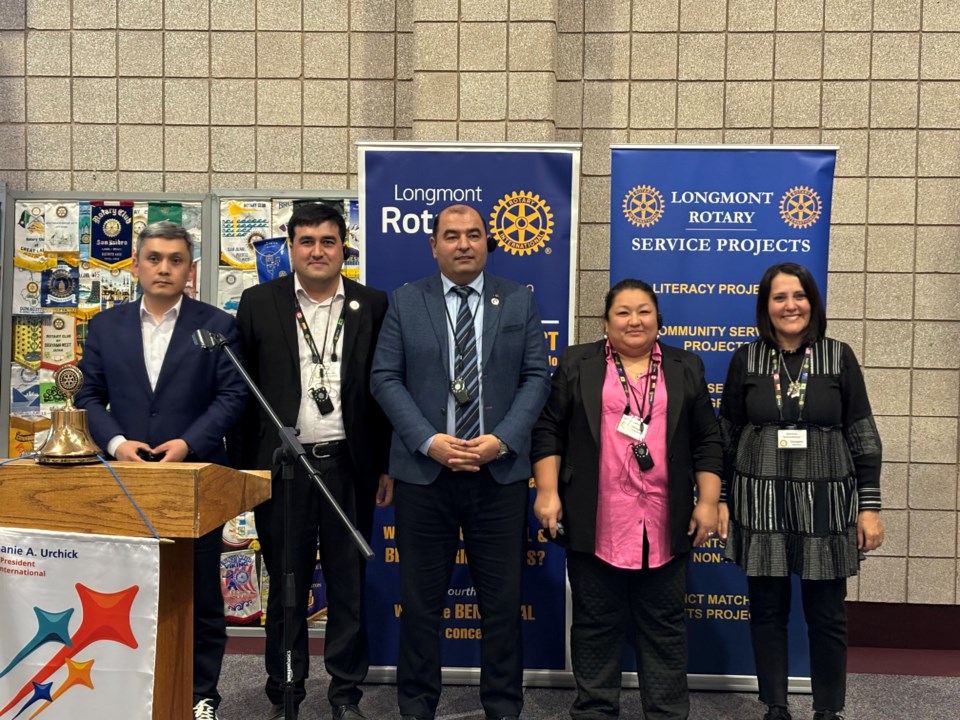The Longmont Rotary Club welcomed its 19th delegation for the Open World Project. It hosted five representatives from Kosovo, Kyrgyzstan, Moldova, Tajikistan, and Ukraine last week to learn more about water conservation in Colorado.
Leaders from these countries struggle each day to come up with innovative ways to save the Aral Sea, their main source of water.
The Aral Sea began shrinking in 1960 because the rivers that fed the sea were diverted for irrigation. The diversion has resulted in the eastern basin of the sea drying up completely.
The Aral Sea is said to be one of the world's worst environmental disasters. The water that remains in the sea is polluted with fertilizer and pesticides from agricultural runoff. The dried lakebed is also covered in salt. Local experts believe the change in the sea has led to global climate change to include hotter summers and colder winters. Other experts believe that the pollution in the area has led to a number of health issues including infertility, miscarriages and birth abnormalities.
Representatives from the five countries have visited a number of water agencies across Colorado including the Chimney Hallow Reservoir site, the Left Hand Water Conservancy and more. They told Rotary members, at last week's meeting, that they had learned a great deal to take back to their countries. The five countries work together to allow for the fair issuance of water. The most common use in the region is for agriculture.


